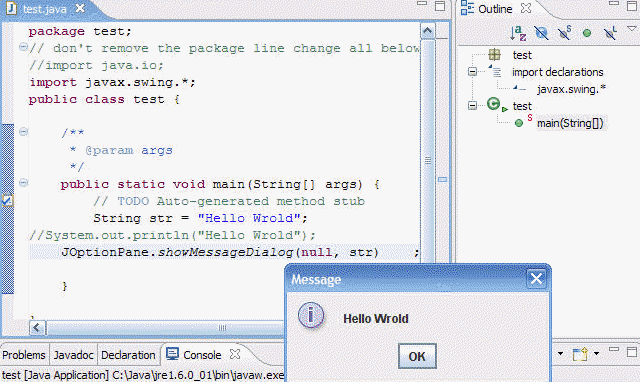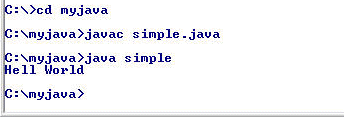- If you are using some tool like Eclipse or Net Bean; your application will be layered within a project/package, and irrespective of tools, there would be a main controller or entry point in your code.
- How it is architected?
- Class
- fields to all methods in the class
- public constructor
- methods or function
- public static void or return main (arguments ) condition like throws IOException
OR- public static void or return main (arguments ) condition like throws
- fields to the local method.
- ["public"] ["abstract"|"final"]"class" class_name ["extends" object_name]
"{"
// properties declarations
// behavior declarations
}
- Scope of the field : [ "public" | "private" | "protected" ] [ "final" ] [ "static" | "transient" | "volatile" ]
- data type : int, Sting, double , long , float
- declaration only : scope data_type field_name
- initialization of declared field field_name = value;
- declaration and initialization : data_type var_name = value ;
import java io.*;
//javac simple.java
public class simple
{
public static void main(String args[])
{
System.out.println("Hell World");
}
}
import javax.swing.*;
public class test {
public static void main(String[] args) {
String str = "Hello Wrold";
JOptionPane.showMessageDialog(null, str) ;
}
}

